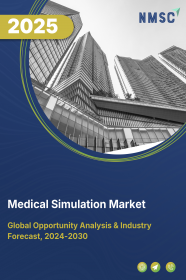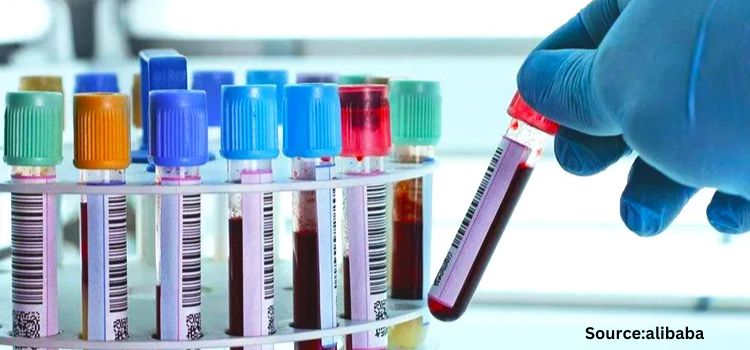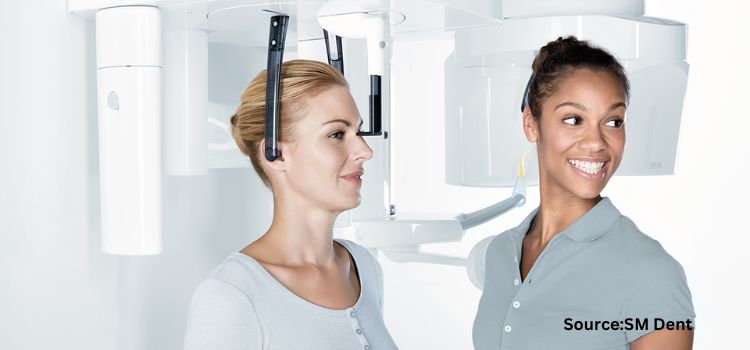
Medical Simulation Market by Product & Services(Anatomical Models, Web-Based Simulation, and Simulation Training Services), by Technology (Virtual Patient, Simulation, 3D Printing, and Procedure Rehearsal Technology), by Fidelity (Low-Fidelity, Medium-Fidelity, and High-Fidelity), and by End User (Hospitals, Military Organizations, Research Institutes, and Others) - Global Opportunity Analysis and Industry Forecast, 2020 – 2030
Industry: Healthcare | Publish Date: 17-Mar-2025 | No of Pages: 402 | No. of Tables: 288 | No. of Figures: 233 | Format: PDF | Report Code : HC46
US Tariff Impact on Medical Simulation Market
Trump Tariffs Are Reshaping Global Business
Market Definition
The global Medical Simulation Market size was valued at USD 1.69 billion in 2019, and is predicted to reach USD 7.64 billion by 2030, with a CAGR of 14.7% from 2020-2030.
Medical simulation or healthcare simulation involves artificial or human simulated patients, animated simulants, holographic simulants, or their combination, to create an artificial representation of the real clinical scenarios.
Medical simulation aims to impart education and train healthcare professionals to perform general practice, prescription, crisis interventions, surgery, casualty assessment in homeland security, as well as emergency response in military situations. Along with healthcare facilities, and military services; medical simulation hold wide applications in educational institutes, and research centres.
Market Dynamics and Trends
There has been an upsurge in minimally invasive surgeries over the period, owing to fast and easy patient recovery. This in-turn has increased the demand for explicitly trained healthcare professionals who can carry out various medical practices and surgeries, with reduced errors and higher precision.
Furthermore, factors such as growing concern regarding patient safety, increasing incidences of medical errors, technological advents in medical simulations, as well as increased penetration of animated and web-based simulation, are anticipated to propel the medical simulation market growth throughout the forecast period.
However, high cost of the products, software, and set-ups; along with high unmet needs, and compliance issues are expected to limit the growth of the medical simulation market.
Market Segmentations and Scope of the Study
The global medical simulation market report has been analyzed based on product and service, fidelity, end user and geography. Based on product, the market is segmented into model-based simulation, web-based simulation, and simulation training services. The model-based simulation segment is sub segmented into patient simulation, surgical simulation and ultrasound simulation. The fidelity are divided into low fidelity, medium fidelity and high fidelity. Based on end users, the market is categorized into academic institutes and research centers, hospitals & clinics, and military organizations. Geographic breakdown and analysis of each of the previously mentioned segments include regions comprising North America, Europe, Asia-Pacific, and RoW.
Geographical Analysis
North America holds the major market share in the global market and is expected to maintain its dominance over the forecast period. The factors attributed to the medical simulation market growth include increase in patient safety norms, technological advancements, along with increasing demand for healthcare services.
It is expected that the emerging economies, specifically in the Asia-Pacific region would witness increasing market size owing to the development of healthcare facilities, increase in commercialization of medical simulators, higher adoption of advanced technology and augmentation in healthcare spending by public as well as private sectors.
Competitive Landscape
The Medical simulation industry, is consolidated and consists of a few major players such as B-Line Medical LLC, Limbs & Things, Ltd., CAE Ltd., Anesoft Corporation, 3B Scientific GmbH Surgical Science Sweden AB, Gaumard Scientific Company, Inc., 3D Systems, Inc., Laerdal Medical, Canadian Aviation Electronics, Ltd., Mentice AB, Simulaids, Edison Biomedical, Surgical Science, and Inovus Limited.
The key players are employing strategies such as technical collaboration, capacity expansion, acquisition, and advanced product launches, in-order to gain stronger position in the medical simulation market.
For instance, in January 2019, CAE Healthcare, one of the major players in the global market, announced collaboration with a UK-based software company TWME8 to create simulation-based learning scenarios that meet the highest educational standards.
In July 2019, Laerdal Medical, a pioneer manufacturer in the market, announced the acquisition over B-Line Medical, a leader in simulation debriefing assessment and management; to create premium debriefing, assessment, and training management platform. With this acquisition, Laerdal Medical aims to deliver the highest quality healthcare education, training, and quality improvement programs to the consumers.
In May 2020, iSimulate, one of the major players in the global medical simulation market, launched ‘REALITi Go’ to replace the existing version of Advanced Life Support (ALS). REALITi Go can imitate defibrillators, ventilators, and patient monitors for imparting extremely realistic simulations. Moreover, the generic patient monitor screen simulations designed by iSimulate, sound, look, and work like the real entity. REALITi Go is compact, lightweight, powerful, more flexible, and economic version of simulated patient monitors developed by iSimulate.
In February 2020, 3B Scientific GmbH, one of the major players in the global market, inaugurated its new Simulation Training Center for Medical Simulation and Skill Training, in Germany. The well-equipped 500 sqm training center located in the heart of Hamburg city, displays advanced medical simulators, and professional task trainers, that impart basic, advanced, and super specialty skilled medical trainings.
Key Benefits
-
The medical simulation market report provides the quantitative and qualitative analysis of the current market trends with the market estimations from 2020-2030 which helps in identifying the possible opportunities in the global market.
-
The study comprises a deep dive analysis of the medical simulation market including the current and future trends for depicting the prevalent investment pockets in the market.
-
The information related to key drivers, restraints and opportunities and their impact on the global market is provided in the report.
-
The competitive analysis of the market players along with their market share in the global market.
-
The SWOT analysis and Porters Five Forces model is elaborated in the study of the market.
-
Value chain analysis in the medical simulation market study provides a clear picture of the stakeholders’ roles.
Medical Simulation Market Key Segments
By Product and Service
-
Anatomical Models
-
Patient Simulators
-
Task Trainers
-
Surgical Simulators
-
Ultrasound Simulators
-
Dental Simulators
-
Eye Simulators
-
-
Web Based Simulation
-
Simulation Software
-
Performance Recording Software
-
Virtual Tutors
-
-
Simulation Training Services
-
Vendor-Based Training
-
Custom Consulting and Training Services
-
Educational Societies
-
By Technology
-
Virtual Patient Simulation
-
3D Printing
-
Procedure Rehearsal Technology
By Fidelity
-
Low Fidelity
-
Medium Fidelity
-
High Fidelity
By End Users
-
Hospitals
-
Military Organizations
-
Research Institutes
-
Others
By Geography
-
North America
-
U.S.
-
Canada
-
Mexico
-
-
Europe
-
UK
-
Italy
-
Germany
-
Spain
-
Netherlands
-
Rest of Europe
-
-
Asia-Pacific
-
China
-
Japan
-
India
-
Australia
-
South Korea
-
Taiwan
-
Vietnam
-
Rest of Asia Pacific
-
-
RoW
-
Latin America
-
Middle East
-
Africa
-
Key Players:
-
B-Line Medical LLC
-
Limbs & Things, Ltd.
-
CAE Ltd.
-
Anesoft Corporation
-
3B Scientific GmbH
-
Surgical Science Sweden AB
-
Gaumard Scientific Company, Inc.
-
3D Systems, Inc.
-
Laerdal Medical
-
Canadian Aviation Electronics, Ltd.
-
Mentice AB
-
Simulaids
-
Edison Biomedical
-
Surgical Science
-
Inovus Limited
Report Scope and Segmentation
|
Parameters |
Details |
|
Analysis Period |
2019–2030 |
|
Base Year Considered |
2020 |
|
Forecast Period |
2020–2030 |
|
Market Size Estimation |
Billion (USD) |
|
Market Segmentation |
By Product & Service (Model-Based Simulation, Web-Based Simulation, Simulation Training Services) By Fidelity (High-Fidelity, Medium-Fidelity, Low-Fidelity) By End User (Academic Institutions, Hospitals, Military Organizations) |
|
Geographical Segmentation |
North America (U.S., Canada, Mexico) Europe (UK, Italy, Germany, Spain, Netherlands, Rest of Europe) Asia-Pacific (China, Japan, India, Australia, South Korea, Taiwan, Vietnam, Rest of Asia Pacific) RoW (Latin America, Middle East, Africa) |
|
Companies Profiled |
B- Line Medical LLC, Limbs & Things, Ltd., CAE Ltd., Anesoft Corporation, 3B Scientific GmbH Surgical Science Sweden AB, Gaumard Scientific Company, Inc., 3D Systems, Inc., Laerdal Medical, Canadian Aviation Electronics, Ltd., Mentice AB, Simulaids, Edison Biomedical, Surgical Science, Inovus Limited |

















 Speak to Our Analyst
Speak to Our Analyst





















